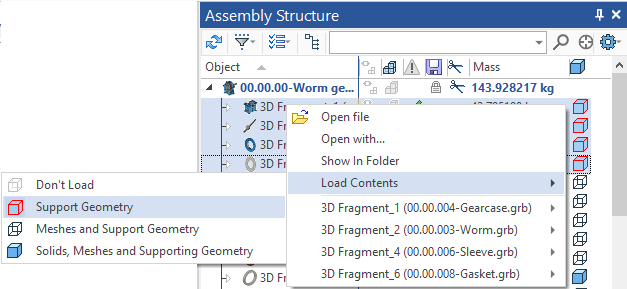Performance Improvements and System Optimization |
  
|
New approach to the loading of assembly fragments significantly improves performance in comparison with the previous versions of T‑FLEX CAD and other CAD systems.
Performance
It is now faster to load all documents, including assemblies. Assemblies with the number of bodies in the order of several tens of thousands are loaded in 20-40 seconds. This is about ten times faster than it was before.
Aircraft model, 48372 bodies.
Version |
Load time |
T‑FLEX CAD 16 |
5 min 15 sec |
T‑FLEX CAD 17 |
38 sec |
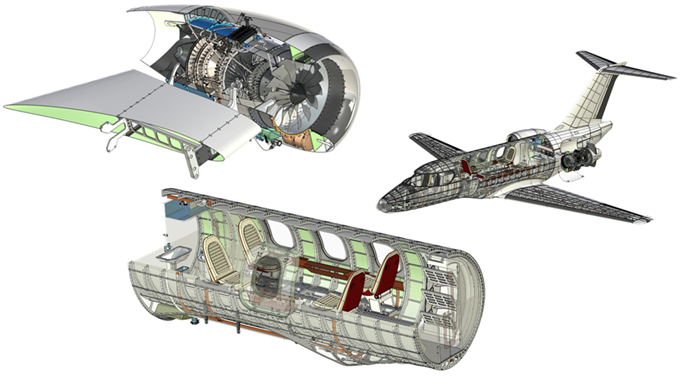
Heliplane model, 60687 bodies.
Version |
Load time |
T‑FLEX CAD 16 |
1 min 30 sec |
T‑FLEX CAD 17 |
25 sec |
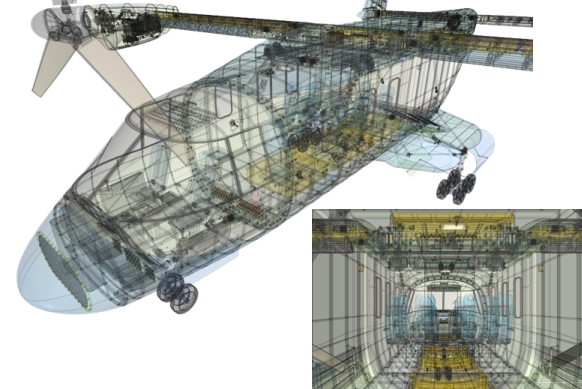
Air cooling unit model, 51395 bodies
Version |
Load time |
T‑FLEX CAD 16 |
3 min 15 sec |
T‑FLEX CAD 17 |
18 sec |
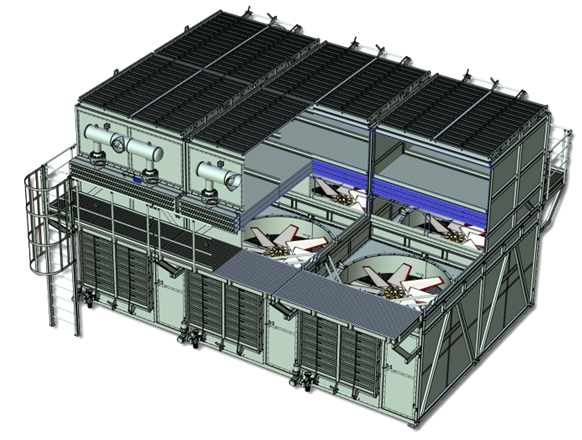
A standby window appears during model loading. If you need to interrupt the download, use the corresponding button.
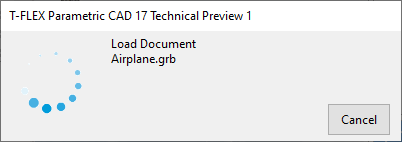
Assembly Loading Setting
Now you can configure the entire Assembly and its fragments loading.
When you open an assembly, you can choose how to load it:
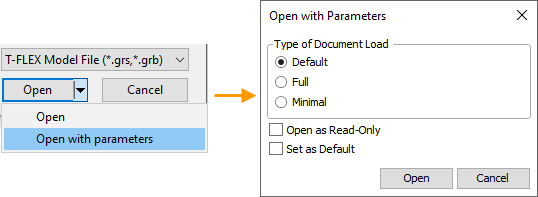
By default, the Assembly will be loaded without bodies, which accelerates the loading process. When you choose the full load, all the fragment bodies will be loaded. When you choose the minimal load, fragments are not loaded. The assembly tree with all the fragments is available for the user but the 3D scene will be empty.
After the assembly is loaded you can set the loading method for each fragment. This enables you to both upload the necessary elements of the fragment and unload the extra ones. The following options are available:
•Solid, Meshes and Support Geometry;
•Meshes and Support Geometry;
•Support Geometry;
•Don’t Load.
Each option you select affects performance. By default, the fragments have grids loaded, which allows you to see their visual display, and the reference geometry is loaded, which shows the external objects of the fragments. If an Assembly fragment is selected as an element of any modeling or measurement operation, bodies are automatically loaded for it. You can upload the bodies, grids, and supporting geometry of a fragment, or unload it using the context menu of the selected fragment or the group of fragments.
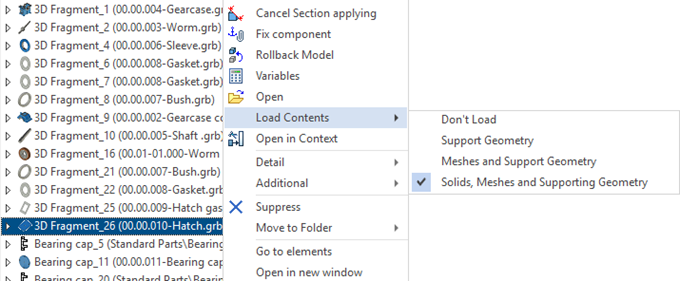
You can control the completeness of fragment loading either in the "3D Model" window or in the "Assembly Structure" window. In the assembly structure window, a special column "loading content" has been added. Special diagrams are used to show, what elements are loaded for each of the fragments.
